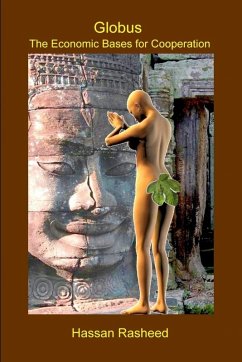Human life arose on Earth more than three million years ago. How the first human cooperative systems emerged from seemingly selfish origins is an area of intense research, spanning biology, game theory and economics. Globus: The Economic Bases for Cooperation is a ground breaking book that reveals in 26 chapters paradigm busting ways on how to think about cooperating human groups in terms of efficiency of work and ultimately of reproduction. It represents the thinking of a leading philosopher/scientist on questions that engage us all on what cooperation is and how it evolves. Hassan Rasheed brings his ideas of cooperation through a shift of thinking to a wider audience of general readers by conveying clear science in an engaging narrative, explaining it in a way that isn't overwhelming for non-science majors and adds questions for the student to prompt critical thinking.
Hinweis: Dieser Artikel kann nur an eine deutsche Lieferadresse ausgeliefert werden.
Hinweis: Dieser Artikel kann nur an eine deutsche Lieferadresse ausgeliefert werden.








